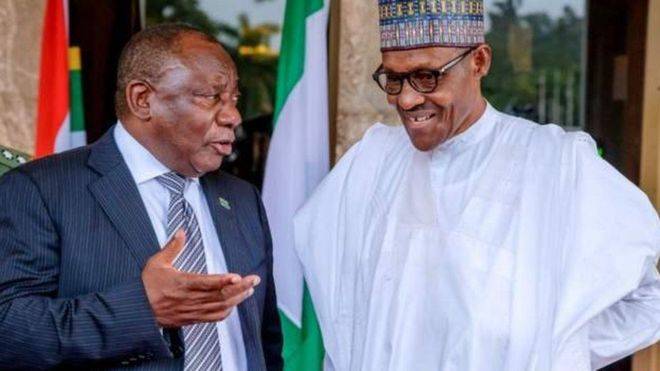Africa’s Two Largest Economies Attempt To Mend Fences Over Xenophobic Attacks & Threats To Bilateral Relations

For some time now, two of Africa’s largest economies have been engaged in some sort of spat. And now things are threatening to boil over if deliberate action is not taken to put an end to the hostilities.
Nigeria and South Africa have sure had their moments in the sun. During the apartheid years, Nigeria was particularly active in the fight for South Africa’s freedom but in the post-apartheid years, it’s been a story of diplomatic spats and trade wars between both nations.
Besides the xenophobic attacks which have tainted South Africa’s post-apartheid years, (and which cannot be expressly labeled as being wholly targeted at Nigerians living in South Africa since it has also affected people from other African countries), some of the animosity is diplomatic.
In 2012, some Nigerians were repatriated upon arriving at the international airport in Johannesburg for allegedly bearing fake Yellow Fever Vaccine Certificates.
And then the Nigerian reprisal came in like manner – dozens of South Africans sent back home upon arriving the international wing of the Murtala Mohammed Airport in Lagos. The tit-for-tat, diplomatic spat that followed was as entertaining as it was disheartening.
Recently, it’s been more about the xenophobic attacks with an increasing number of Nigerians being abused and brutalised in South Africa. But it looks like Nigeria has had enough.
Last week, a group of Nigerians called for South African businesses operating in Nigeria (and there’s many of them) to vacate the country in seven days or face dire consequences. This was in response to the many attacks targeted at Nigerians living in South Africa lately.
The Nigeria-South Africa feud seems destined to escalate but it looks like there may be a way out after all, and both countries are beginning to work towards finding common ground.
Nigeria’s President, Muhammadu Buhari, has accepted an invitation to South Africa. Buhari and South Africa’s President, Cyril Ramaphosa, will meet in October to discuss issues related to the well being of citizens and trade.
In a statement issued by the Nigerian Presidency on Sunday, South Africa’s President made the offer in a telephone call to President Buhari.
Growing reports of xenophobic attacks on Nigerian citizens in South Africa is threatening bilateral relations between two of Africa’s largest economies.
The statement from the Presidency added that President Buhari accepted the invitation to South Africa to further “consider recurrent issues concerning wellbeing of the Nigerian community in South Africa, and the need to promote trade and investment.”
In an earlier letter of invitation, the South African President said: “Your visit will provide an excellent opportunity for our sister countries to further consolidate and advance our strategic partnership and cooperation on matters of peace, security, and socio-economic development in our continent.”
“We will discuss issues of mutual interest and concern in global governance.”
Growing reports over xenophobic attacks on Nigerian citizens in South Africa is threatening to sever diplomatic ties between the two countries. The National Association of Nigerian Students (NANS), over the past week, embarked on protest across South African businesses in the country, calling for those businesses to pack up and leave.
On their part, South African officials continue to deny targeted attacks on Nigerians in the country. It is hoped that the meeting between the presidents of both countries will help to mend fences between the two African superpowers.
Featured Image Courtesy: onlinenigeria.com